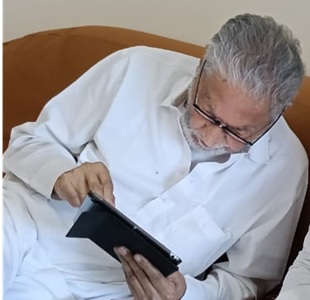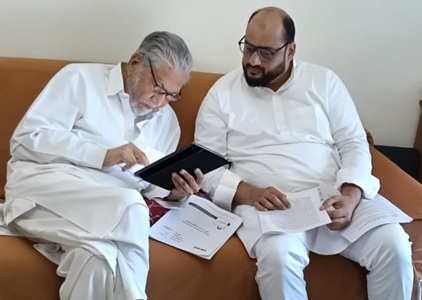New Delhi: The Central Government is believed to have detained thousands of youth including activists, local politicians and businessmen in Kashmir and sent them to jails elsewhere in India since it stripped the region of its autonomy on 5 August.
Many Kashmiris are being held in Agra Central Jail after the government imposed an unprecedented security clampdown in Indian-administered Kashmir, cutting virtually all communications and scrapping the region’s partial autonomy.
At least 4,000 people, mostly young men, have been arrested since the lock-down in Kashmir according to police officials and records reviewed by the Associated Press news agency.
The J&K Director General of Police Dilbag Singh said in an interview to The Hindu that August 5 onwards, around 3,000 cases were reported where young men were picked up and released subsequently in the Kashmir Valley. Around 800 remain in detention and nearly 150 are lodged in jails outside J&K.
The J&K police have started a unique practice of engaging the community elders, religious teachers and family members to deter the youth from repeating offences like throwing stones at security forces. As per the bond, the community members are made to stand as guarantors for the youth at the local police station for first-time offenders. The bond has no legal sanctity though.
Before the Bharatiya Janata Party-led government announced its decision to scrap the special status that gave Kashmir its autonomy, it put the region under lockdown – mobile phone networks, landlines and the internet were cut off; and regional political leaders were placed under house arrest.
Prime Minister Narendra Modi has promised that removing Kashmir’s special status will usher in a “new dawn” for the Muslim-majority region. But Kashmiris have instead experienced more than three weeks of silence and anger, marked by a communications blackout and widespread detentions.
Heavy-handed security tactics are not new in Kashmir, which has been home to an anti-India insurgency since 1989. But experts say the scale and intensity of the current crackdown — targeting everyone from teenagers to relatives of militants to senior politicians — appears to be without parallel.
Human rights observers at the United Nations have expressed their concern over the situation. “It’s very worrisome,” said Bernard Duhaime, the U.N. chair-rapporteur for the Working Group on Enforced or Involuntary Disappearances. He urged India to ensure that detentions are properly registered, relatives are informed of detainees’ whereabouts and judicial authorities verify the legality of the detentions.






0 Comments